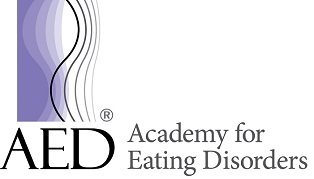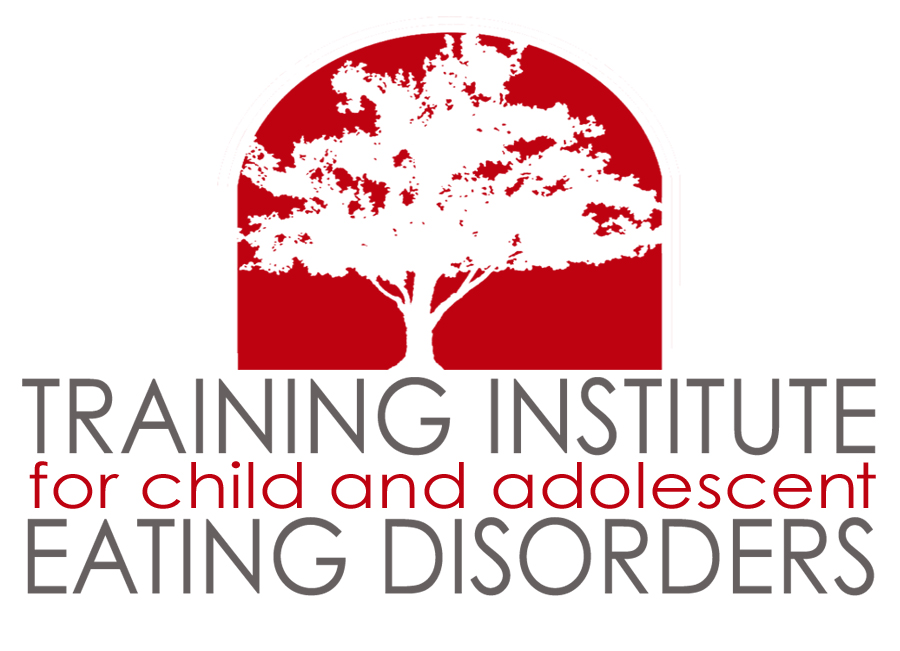What is Bulimia Nervosa?
Bulimia nervosa is an eating disorder characterized by a cycle of binge eating followed by compensatory behaviors, such as self-induced vomiting, excessive exercise, fasting, or misuse of laxatives and diuretics. This pattern results from an individual’s obsession with body weight, shape, and control over food intake. The binge-purge cycle can cause serious physical and mental health consequences, including electrolyte imbalances, gastrointestinal problems, and anxiety or depression. Bulimia nervosa often remains hidden, as those affected may maintain a normal or slightly above-average weight, making it difficult to recognize. Treatment typically involves a combination of therapy, nutrition counseling, and medication to address both the psychological and physical aspects of the disorder.
What Causes Bulimia Nervosa?

Bulimia nervosa, like other eating disorders, arises from a complex interplay of genetic, psychological, environmental, and social factors. The exact cause is not fully understood, but some contributing factors include:
- Genetic predisposition: Individuals with a family history of eating disorders are more likely to develop bulimia nervosa, suggesting a genetic component.
- Biochemical factors: Imbalances in brain chemicals such as serotonin and dopamine may contribute to the development of bulimia nervosa.
- Psychological factors: People with bulimia nervosa often have low self-esteem, feelings of inadequacy, and perfectionism. They may also struggle with depression, anxiety, or obsessive-compulsive disorder.
- Environmental factors: Societal and cultural pressure to conform to a particular body type or appearance can contribute to the development of eating disorders. Exposure to media images promoting thinness and diet culture can also play a role.
- Family influences: Dysfunctional family dynamics, such as a lack of emotional support or a history of abuse, may contribute to the development of bulimia nervosa.
- Life stressors: Major life changes or stressors, like moving to a new place, starting a new job, or experiencing a traumatic event, can trigger the onset of an eating disorder.
It’s important to note that these factors do not guarantee the development of bulimia nervosa but can increase an individual’s vulnerability to the disorder. A combination of factors may contribute to the development of the condition in different individuals.
How We Treat
Resilience DBT & Eating Recovery is a team of Outpatient Eating Disorder Therapists in New Jersey, Florida, and Maryland. Our therapists are ready and equipped with clinical services to provide healing.
At Resilience DBT & Eating Recovery, we have helped individuals of all ages and backgrounds with their eating behaviors. We recognize that both men and women can benefit from bulimia nervosa treatment. Because of this, you will find that our inclusive treatment program can be tailored to fit your needs.
We use a variety of treatment approaches including DBT, CBT, CBT-E, Family-Based Therapy, and Expressive Arts Therapies. Your treatment may include a combination of group therapy, individual therapy, and educational sessions.
If you find yourself searching for bulimia nervosa treatment, it will be important to consider treatment for other mental health concerns you may be living with. At Resilience DBT & Eating Recovery, we can provide you with treatment for any additional mental health concerns you may be living with.
Health Risks Associated With
Bulimia Nervosa
At Resilience DBT & Eating Recovery, we provide Bulimia Nervosa treatment for children, pre-teens, adolescents, young adults, and adults.
Bulimia nervosa involves health risks due to binge-purge cycles:
- Electrolyte imbalances: Can lead to irregular heartbeats, heart failure, and death.
- Dehydration: May cause kidney damage and other complications.
- Gastrointestinal problems: Includes inflammation or tearing of the esophagus, GERD, and tooth decay.
- Hormonal imbalances: Disrupts menstrual periods in females and testosterone levels in males.
- Nutrient deficiencies: Results from inadequate nutrient intake, causing malnutrition and deficiencies.
- Psychological issues: Anxiety, depression, low self-esteem, self-harm, substance abuse, and suicidal ideation.
- Damage to vital organs: Strain on the heart, kidneys, and liver due to the disorder.
Early diagnosis and treatment, including therapy, nutritional counseling, and medication, are crucial to mitigate these risks.
Our Treatment Methods
effective recovery is one step away
The Resilience DBT & Eating Recovery Program offers expert assessment and evidenced-based treatment for the full range of eating disorders and body image problems. We are experienced and certified to treat pediatric, adolescent, and adult eating disorders with boys and girls, and with men and women. We are trained to recognize the biological and brain-based underpinnings of eating disorders and utilize the Evidenced-Based treatments – Family-Based Therapy (FBT) or Maudsley Approach, CBT-E, and DBT for Eating Disorders. Parents are always included as an essential and an integral part of a child or teen’s recovery from an eating disorder.
FAMILY BASED TREATMENT (FBT)
Family-Based Treatment (FBT) stands as the gold standard for addressing eating disorders in children and adolescents, particularly for early-onset cases of anorexia, bulimia, and ARFID (Avoidant Restrictive Food Intake Disorder). FBT is now recognized as the first line of treatment.
This approach places parents at the forefront of their child’s re-nourishment and weight restoration process, guided by a certified FBT practitioner and in collaboration with an outpatient pediatrician or adolescent medicine specialist. The child or adolescent, alongside their parents, undergo a thorough screening to ensure their suitability for this protocol, which is conducted in the least restrictive environment – the comfort of your home!


Cognitive Behavioral Therapy (CBT-E)
At Resilience Therapy, we specialize in Cognitive Behavioral Therapy Enhanced (CBT-E) to support children, teens, and adolescents struggling with eating disorders. Our compassionate and highly skilled therapists are dedicated to helping your loved ones develop resilience and overcome challenges associated with various eating disorders, such as anorexia nervosa, bulimia nervosa, binge-eating disorder, and other specified feeding or eating disorders (OSFED).
We understand that each individual’s experience is unique, and that’s why our approach to CBT-E is tailored to meet the specific needs of our clients across all age groups. Our therapy sessions are time-limited, structured, and goal-oriented, typically involving individual sessions with a therapist.
Dialectical Behavior Therapy for Eating Disorders (DBT-ED)
Dialectical Behavior Therapy for Eating Disorders is an eating disorder treatment we use for adults who struggle with co-occuring mental health issues and an eating disorder.
DBT-ED is the treatment of choice for individuals that struggle with co-occurring mental health issues in addition to the eating disorder; such as depression, anxiety, suicidal ideation or PTSD. This comprehensive treatment method addresses the complexity of these mental health issues, in concert, prioritizing the most dangerous symptoms first. DBT Skills Training is excellent method for follow-up Aftercare and Relapse Prevention after a residential or intensive Eating Disorder treatment program.


Expressive Arts Therapies
Expressive Arts therapies are powerful and effective modalities in the treatment of eating disorders. Unexpressed emotions and thoughts out of awareness, interfere with true recovery. Art Therapy, Dance/Movement Therapy, music, and psychodramatic role-play make emotions, bodily-felt sensations, and cognition more accessible. Once emotions and thoughts are accessible, one can better utilize the problem solving methods in CBT and DBT.
How We Treat
Explore the benefits of an evidence-based approach to therapy
Family Based Treatment (FBT)
FBT, or the Maudsley approach, is a Gold Standard treatment. FBT is a culturally-sensitive method that keeps a child in their family environment.
Cognitive Behavioral Therapy (CBT-E)
We specialize in Cognitive Behavioral Therapy Enhanced (CBT-E) to support children, teens, and adolescents struggling with eating disorders
Comprehensive Dialectical Behavior Therapy (DBT)
Our compassionate and highly skilled therapists are dedicated to helping your loved ones develop emotional resilience, improve their self-esteem, and overcome challenges associated with various eating disorders.
How do I begin?
Our team is dually and expertly trained in the Treatment of Eating Disorders and DBT for Mental Health. Our Evidenced-Based approaches include FBT, CBT-E, DBT-ED, and Comprehensive DBT for co-occurring mental health conditions. Our outpatient practice has helped Children, Teens and Adults achieve full Eating Disorder Recovery and Mental Health Stability for over 25 years.
1
Schedule your 15 minute free phone consultation
This phone screening is highly confidential to help determine if coming to the Resilience practice is the best course for you or your loved one.
2
Complete an Expert and Comprehensive Intake
During your intake appointment we will gather more information to identify your stressors and needs. And work with you to develop your resilience treatment plan.
3
Get connected with Your Personalized Care Team
Meet with a practitioner to get started on your journey of healing and wellness you know you deserve.









